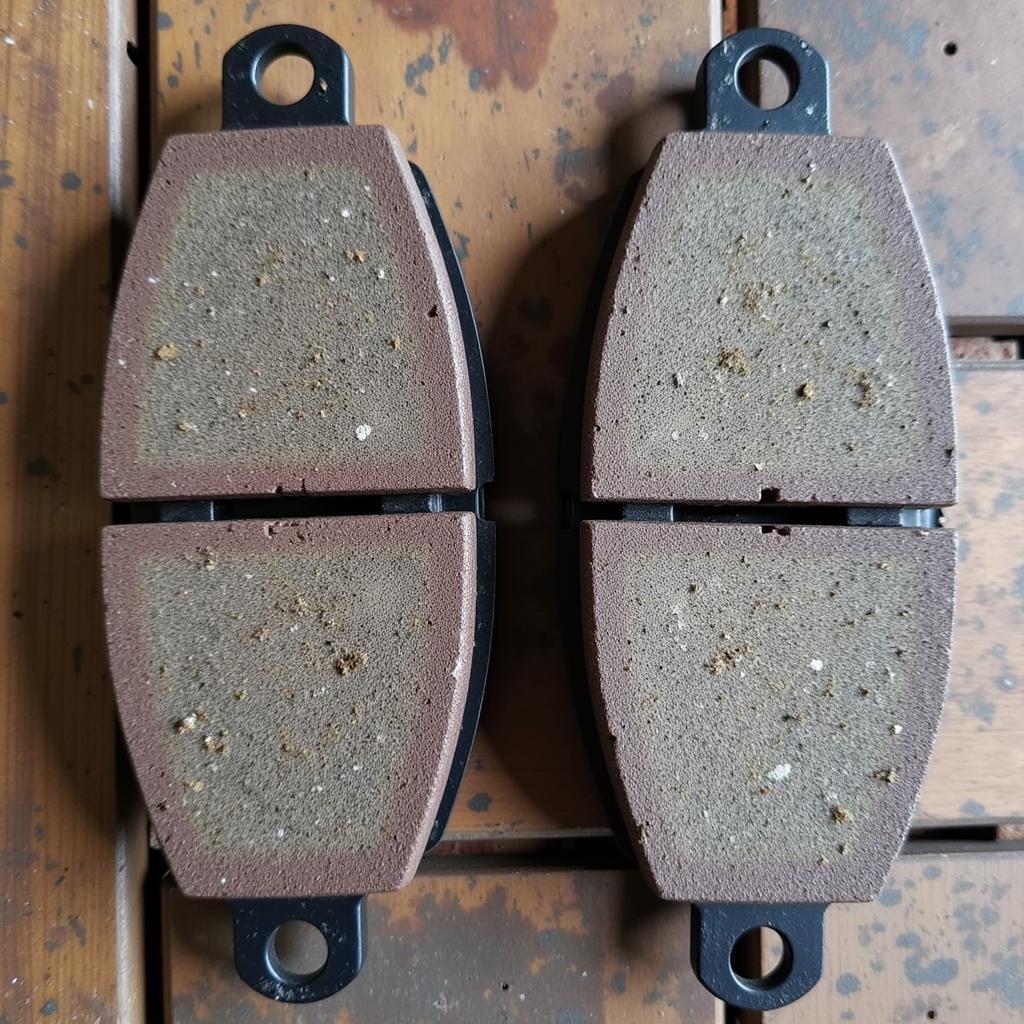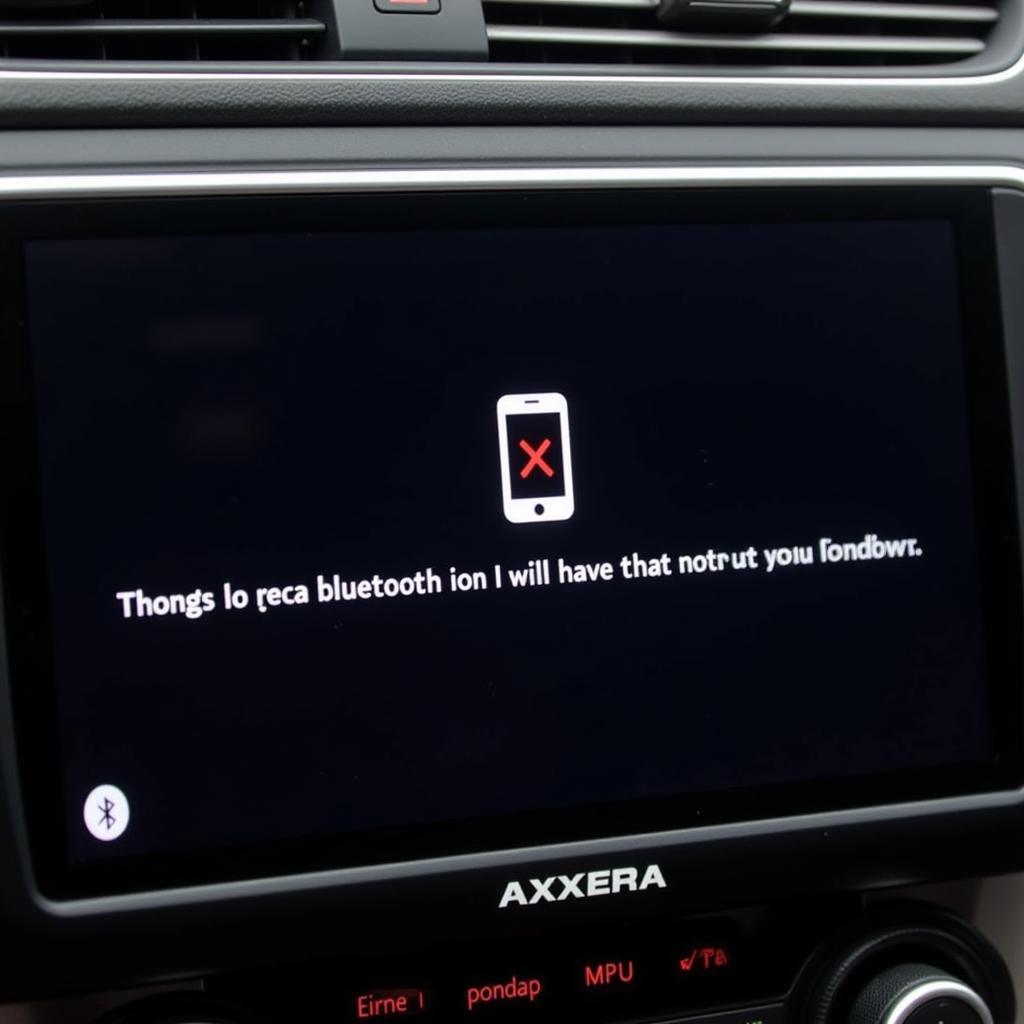The dreaded Mitsubishi Colt brake warning light can be a real headache, leaving you with a sense of unease and uncertainty. This guide dives deep into the common causes, diagnostic procedures, and solutions for this issue, helping you get back on the road safely and confidently. We’ll cover everything from simple checks to more complex scenarios, empowering you to understand and address the problem effectively.
Understanding Your Mitsubishi Colt’s Brake System
Your Colt’s braking system is a complex network of components working together to ensure safe and efficient stopping power. It’s crucial to understand the basics to effectively troubleshoot the brake warning light. The system comprises several key parts: the master cylinder, brake lines, brake calipers, brake pads, and rotors. The brake warning light acts as a sentinel, alerting you to potential issues within this intricate system.
Common Causes of the Mitsubishi Colt Brake Warning Light
Several factors can trigger the brake warning light on your Mitsubishi Colt. Identifying the root cause is the first step towards a solution.
- Low Brake Fluid: This is the most frequent culprit. Check your brake fluid reservoir; a low level can indicate a leak or worn brake pads.
- Worn Brake Pads: As your brake pads wear down, the fluid level in the reservoir drops. If the pads are excessively worn, the warning light will illuminate.
- Faulty Brake Sensor: A malfunctioning sensor can trigger the warning light even if there’s no actual problem with the braking system.
- ABS Issues: Problems with the Anti-lock Braking System (ABS) can also activate the warning light. This often requires specialized diagnostic tools.
- Parking Brake Engaged: Sometimes, the simplest explanation is the correct one. Ensure your parking brake is fully disengaged.
Diagnosing the Brake Warning Light
If your brake warning light persists, further diagnosis is necessary. Start with these simple checks:
- Check the Parking Brake: Make sure it’s completely released.
- Inspect Brake Fluid Level: Top up the fluid if it’s low, but if the level drops rapidly again, it indicates a leak that requires immediate attention.
- Visual Inspection of Brake Pads: Check the thickness of your brake pads. If they’re thin, replacement is likely necessary.
 Worn Brake Pads on a Mitsubishi Colt
Worn Brake Pads on a Mitsubishi Colt
What to Do if the Light Stays On
If the basic checks don’t resolve the issue, it’s time to seek professional assistance. A qualified mechanic can use diagnostic tools to pinpoint the problem accurately. This is particularly important if you suspect an ABS issue, as these systems are complex and require specialized knowledge.
Why is my Mitsubishi Colt brake warning light on?
The brake warning light can illuminate for various reasons, including low brake fluid, worn brake pads, a faulty brake sensor, ABS issues, or even a simply engaged parking brake.
How do I reset the Mitsubishi Colt brake warning light?
The light will typically reset itself once the underlying issue is resolved. However, if the light remains on after repairs, a mechanic might need to reset it using diagnostic equipment.
Expert Insights
“Regular brake inspections are crucial for maintaining safety and preventing costly repairs. Don’t ignore the warning light – address it promptly,” advises John Miller, a seasoned automotive technician with over 20 years of experience. He further emphasizes, “Addressing brake issues early can prevent further damage to the system and ensure optimal performance.” Another expert, Sarah Johnson, a certified brake specialist, adds, “Modern braking systems are sophisticated. If you’re unsure about any aspect of the diagnosis or repair, consult a qualified professional.”
Conclusion
The Mitsubishi Colt brake warning light shouldn’t be ignored. By understanding the potential causes and following the troubleshooting steps outlined in this guide, you can effectively address the issue and ensure the safety and reliability of your vehicle’s braking system. Remember to consult a professional if you’re unsure about any aspect of the diagnosis or repair. Addressing the brake warning light promptly can save you time, money, and most importantly, keep you safe on the road.


